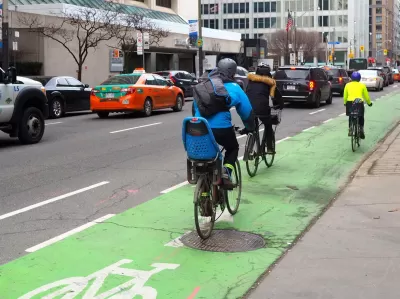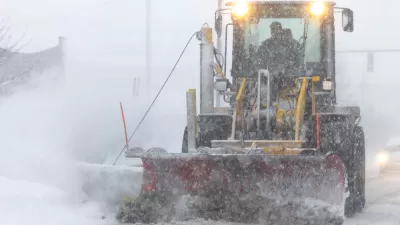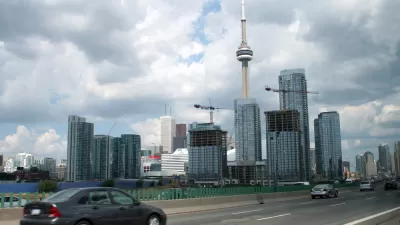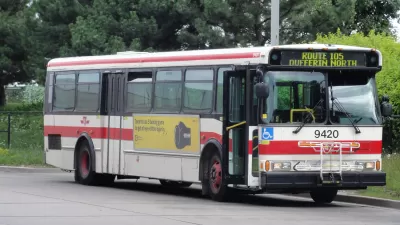More than two years into a 10-year plan, the city has installed only a fraction of planned bike lanes.

Ben Spurr reports on the status of Toronto’s Cycling Network 10 Year Plan, which the city council approved in 2016. Biking advocates say the city is not meeting the milestones needed to keep the plan on track.
The city has completed only about 6 percent of the almost 350 lane miles outlined in the plan. In addition, annual expenditures of the $153.5-million plan have been below target amounts. Last year, for example, investments should have totaled $16 million, but the city only spent $10 million.
City officials acknowledge that the plan is running behind schedule and say more staff is needed. They also say that the planning and implementation process takes time and that bike lane installations are often dependent on other road projects, which can face delays or rescheduling.
Still, bike advocates want to know why the city is not keeping up with a detailed project schedule that was part of the approved plan. In addition, critics say the city needs to prioritize corridor studies to identify bike lane sites on main arterials. "Councillor Joe Cressy, a vocal cycling advocate, said major streets need to be added back into the plan, otherwise the city will be confined to improving cycling routes on less-used residential streets," notes Spurr.
FULL STORY: City’s execution of 10-year bike plan ‘has not delivered on expectations,’ says advocate

Alabama: Trump Terminates Settlements for Black Communities Harmed By Raw Sewage
Trump deemed the landmark civil rights agreement “illegal DEI and environmental justice policy.”

Study: Maui’s Plan to Convert Vacation Rentals to Long-Term Housing Could Cause Nearly $1 Billion Economic Loss
The plan would reduce visitor accommodation by 25% resulting in 1,900 jobs lost.

Planetizen Federal Action Tracker
A weekly monitor of how Trump’s orders and actions are impacting planners and planning in America.

Wind Energy on the Rise Despite Federal Policy Reversal
The Trump administration is revoking federal support for renewable energy, but demand for new projects continues unabated.

Passengers Flock to Caltrain After Electrification
The new electric trains are running faster and more reliably, leading to strong ridership growth on the Bay Area rail system.

Texas Churches Rally Behind ‘Yes in God’s Back Yard’ Legislation
Religious leaders want the state to reduce zoning regulations to streamline leasing church-owned land to housing developers.
Urban Design for Planners 1: Software Tools
This six-course series explores essential urban design concepts using open source software and equips planners with the tools they need to participate fully in the urban design process.
Planning for Universal Design
Learn the tools for implementing Universal Design in planning regulations.
Caltrans
Smith Gee Studio
Institute for Housing and Urban Development Studies (IHS)
City of Grandview
Harvard GSD Executive Education
Toledo-Lucas County Plan Commissions
Salt Lake City
NYU Wagner Graduate School of Public Service





























